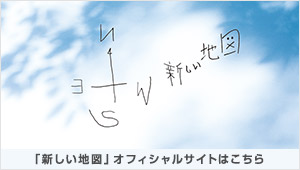アフリカのニジェール共和国に外科医として派遣され10年間勤務後、
その地に留まって医療活動を続けることを決意。
地方外科医療の改善の ため私費で病院を建設。
そうゆう日本人がいるということを今日まで知りませんでした。
現地で奥さんを風土病でなくされた後もその地で医療支援活動を続けている -
これはテレビ東京の番組
「世界ナゼそこに?日本人~知られざる波瀾万丈伝~」
で紹介されたものです。
番組ではニジェールで医療活動を続けている谷垣医師(72歳)の活動の様子を取材。
多くの方に知ってもらいたく思い、ブログに紹介させていただきました。
先生の活動は以下のサイトで大変よくとまって紹介されているので、
一部こちらに抜粋させていただきました。
-----------
番組タイトル
【世界ナゼそこに?】
秘境アフリカ 貧国「ニジェール」唯一の日本人"谷垣雄三医師"に愛の手を!!
http://matome.naver.jp/odai/2138719676734011901
より以下転載
谷垣雄三医師は、1967年信州大学医学部卒。
1982
年JICA(国際協力機構)よりニジェール共和国ニアメ国立病院に外科医として派遣され、10年間診療に従事しました。 放置された地方外科医療の改善の
ため、1992年自費でテッサワに100ベッドの病院を設立し、「援助に頼らない外科医療確立」を目指し、幾多の困難を乗り越えて、今もなお現地にとどま
り全力を注いでいます。
横浜港北ロータリークラブでは、2001年創立40周年を記念して“谷垣BOX”をつくり、同年JICAからの派遣が終了したことにより、病院の運営、維持のために谷垣雄三医師の支援を続けています。
谷垣雄三医師のプロフィール
1942年京都府峰山町(現・京丹後市)に生まれる
1967年信州大学医学部卒業
1970年小川赤十字病院で4年間、整形外科、麻酔科を研修し、その後国内施設で
胸部外科、一般外科を研修する
1979年ニジェール共和国、サハラ砂漠のアガデスの診療所に1年間勤務。 帰国後、小岩病院で外科、内視鏡を研修、アテネ・フランセでフランス語を学ぶ
1982年JICAからニジェール共和国・ニアメ国立病院に外科医として派遣される
1992年ニジェール地方外科医療改善のため、自費でテッサワに病院を設立し、JICAの支援を受け、ニジェール人外科医を2名養成し、援助に頼らない外科医療を開始した
1994年読売新聞社・国際医療功労賞を受賞
1999年静子夫人 現地で風土病にて逝去・埋葬される
2001年JICAから単独派遣打ち切りにより支援が断たれ、自力で医療活動を決意、また谷垣病院が国有化されたため、再度、自費で100ベッドの病院を建設する
2001年横浜港北ロータリークラブ名誉会員
2006年国家公務員であった谷垣病院の看護師が引き上げたため、一時、病院を閉鎖する
2007年病院を再開し、現在に至る
2008年シチズン・オブ・ザ・イヤー賞を受賞
2009年第16回読売国際協力賞を授与
○貧しき人々のためにお金のかからない医療を
○アフリカの文化を理解し、現地の状況に即した医療を
「異民族の病人を中心に医療を行うことは難しい。
私の行っている医療はちっぽけなことに過ぎない」
1982年、JICAの派遣医師として、ニジェール共和国の首都・ニアメの国立病院に赴任。
ニ
ジェールは、国土の3分の2がサハラ砂漠、人口約750万人。一家あたりの年収10,000円程度、独立後30年を経て外科医は2名。ニジェールでは貧困
により治療費が払えないため、病院に行かずに放置するケースが多いという劣悪な凄まじき超医療過疎地ニジェールの医療の現状を自分の目で見て、改善に取り
組むことを決意した。そして、医療施設がない地方で手術が可能な医療を実現させるために私財8千万を投じて病院を設立した。
手術は年間に1000件以上手がける。貧しい患者のために高額な医療 品は使えないので、スタッフとあれこれ工夫する。手術用の手袋には台所用のものを当てる、手術糸は安くて太いミシン糸、日本から送られた販促用のタオルは ガーゼ代わり、日本の新聞紙は滅菌すれば何にでも使える。2001年に、19年間続いたJICAの援助が打ち切られた後は、熊谷義也さんなどの医師仲間や 出身地・京都の同級生の寄付金で、不足する運営費を補っている。その後、病院を国に寄附し、谷垣さんは再度私費を投じて新たに病院を建設し、一時休んでい た診療を昨年9月から再開した。谷垣さんが目指す「自立した外科医療」への挑戦は継続している。
ニジェールってどんな国?
ニジェールで最も深刻な問題となっているのが、貧困です。 ニジェールは、世界で極めて貧しい国の一つで、国民の約60%が1日1ドル以下の生活をしており、慢性的な食糧不足の問題を抱えています。国民のほとんど が農業に従事していますが、耕作可能な土地は国土の10%ほどしかなく、十分な作物を作ることができません。そのため、まともな医療を受けるだけの収入も なければ、病院も少ないのが現状です
▼関連リンク▼
谷垣雄三医師の医療支援活動 アフリカ ニジェール共和国 面積:日本の3倍 人口:1500万人 外科施設は7病院 谷垣医師は自費で外科病院を設立 外科医1名 看護師6名 検査技師1名 手術数:約1,000例/年 谷垣雄三医師は、1967年信州大学医学部卒。 1982年JICA(国際協力機構)よりニジェール共和国ニアメ国立病院に外科医として派遣され、10年間診療に従事しました。 放置された地方外科医…
谷垣雄三医師を、知っている日本人は、いったいどれぐらいいるのだろうか? 谷垣ドクターは、かれこれ30年以上も、ニジェールの地で医療活動をされている。 日本人の誇りだ。 医学部を出て、大学病院でさらに医師になっていく。そんな日本人が大勢いるが...
トップ > 調査研究本部 > 読売国際協力賞 > 第16回(2009年度) 読売国際協力賞 YRI トップページ 本部長ごあいさつ 読売国際会議 YIES ノーベル・フォーラム 読売テクノ・フォーラム 女性フォーラム その他のシンポジウム 読売・吉野作造賞 読売国際協力賞 読売クオータリー 研究員の顔ぶれ お問い合わせ 第16回(2009年度)読売国際協力賞 ニジェールで医療活動の谷垣…
月曜21時からテレビ東京系で放送中の『世界ナゼそこに?日本人~知られざる波瀾万丈伝』は、世界の果てで暮らす、知られざる日本人の活躍に密着。そこから元気や勇気をもらい、日本人としての誇りが持てるドキュメン…
人々に感動を与えた人・発展に貢献した人たちをご紹介します。
music by Sora Aonami アフリカ・ニジェール サハラの慈雨 谷垣雄三医師の検診医療に愛の手を 詳細はここに載っています。------> 更新箇所へ → 国土の3分の2がサハラ砂漠、人口約750万人。一家あたりの年収10,000円程度、独立後30年を経て外科医は2名。この凄まじき超医療過疎地で、献 身的な活動を続けている医師がいます。 京都府中郡峰山町出身の 谷垣雄三医師 です。谷…
日々仕事に追われる27歳。日常にふと疑問を感じ、悩んだ末に出した結論。 『人生は1度きり。やりたいことはやろう!!』 職場を離れ、世界放浪に旅立ちました。
転載はここまで。
http://matome.naver.jp/odai/2138719676734011901
から転載させていただきました。
世界ナゼそこに?日本人~知られざる波瀾万丈伝~:テレビ東京
毎週月曜 夜9分放送「世界ナゼそこに?日本人~知られざる波瀾万丈伝~」公式サイト。
谷垣医師についてさらに詳しい知りたい方は、
こちら
ウエブマガジン
「ニジェールで外科医療に献身」
http://www.citizen.co.jp/coy/web_magazine/
で。
ウエブマガジン(例年の受賞者のを出
谷垣さんを訪ねた仲間4名でまとめました手記を
『ニジェール紀行
ウエブマガジンにまとめている。
English
以下は英語のサイトから
------------------
http://citizen.co.jp/global/coy/archive/2007_03.html

Born: 1941; from: Kyoto Prefecture, Japan
Since he was in high school, Dr. Tanigaki had dreamt of working as a doctor overseas. In January 1979, he was stationed in the Republic of Niger in West Africa as an industrial physician with an oil company. His term ended after a year and a half, but his wish to involve himself in medical care in the region continued, and from 1982 he worked at the national hospital in Niamey, the capital city, as a dispatched physician with JICA. During his 10 years of service, he witnessed patients who had spent days walking to the hospital from remote areas, only to die before they could be surgically treated. Dr. Tanigaki vowed to offer medical care, including surgery, in a remote area without any medical facilities.
With 80 million yen of his own money he built a hospital, which was completed in May 1992, in Tessaoua, a city of 30,000 people about 770 kilometers away from Niamey. However, many obstacles awaited him there. The clouds of dust necessitated quadruple doors for the operating room, and a nearby marsh had to be filled because everyone on staff came down with malaria. As all this was happening, in 1999 he lost his wife Shizuko to a high fever of unknown cause. Dr. Tanigaki never fails now to call out to his wife's grave by his front door on his way to and from the hospital.
Dr. Tanigaki performs more than 1,000 operations a year. Costly medical supplies cannot be used for the poverty-stricken patients, so he and his staff get creative. They use kitchen gloves in place of surgical gloves, and inexpensive, thick sewing machine thread in place of surgical thread. Promotional towels, sent in from Japan, are used as gauze. Japanese newspapers can be used for a variety of purposes once they are sterilized. Even so, ever since JICA funding was cut off in 2001 after 19 years, Dr. Tanigaki relies on donations from fellow physicians such as Dr. Yoshiya Kumagai and former classmates from his native Kyoto to help cover shortfalls in operational costs.
Although he donated the hospital to the government, he bailed a new hospital again with his own money, and he re-open his practice in September. Dr. Tanigaki continues to strive to make his vision of "independent surgical care" a reality.

Dr. Tanigaki has devoted himself to medical care in this extremely deprived region in West Africa, overcoming many difficulties in the course of a quarter century. While physicians working abroad are becoming something of a trend in recent years, surgeons are still very rare. There are even fewer people who have set down their roots to this extent in the local community. This is also a lesson for our high-cost, modern medicine.
<In attendance to represent Dr. Tanigaki at ceremony>
Dr. Yoshiya Kumagai (Director, Kumagai Satellite Clinic)
<Supporters for Dr. Yuzo Tanigaki" (Representative: Shuji Shimanuki>
"Supporters for Dr. Yuzo Tanigaki" (Representative: Shuji Shimanuki
From http://citizen.co.jp/global/coy/archive/2007_03.html










From this rural town in Niger, Africa, I am sending you my words of gratitude. In this community there is a constant stream of many patients who require surgery, and I am kept fully occupied with their treatment. Surgical treatment is an area of modern medicine that requires much manpower and costs large sums of money. The patients in this community cannot afford to pay medical costs with their low income. We have been as creative as we can, trying to devise safe, inexpensive ways to perform "surgery." Even so, there are limits. I am touched and heartened by the warm support of the people of Japan. I am also happy and grateful to receive the Citizen clock for my operating room.